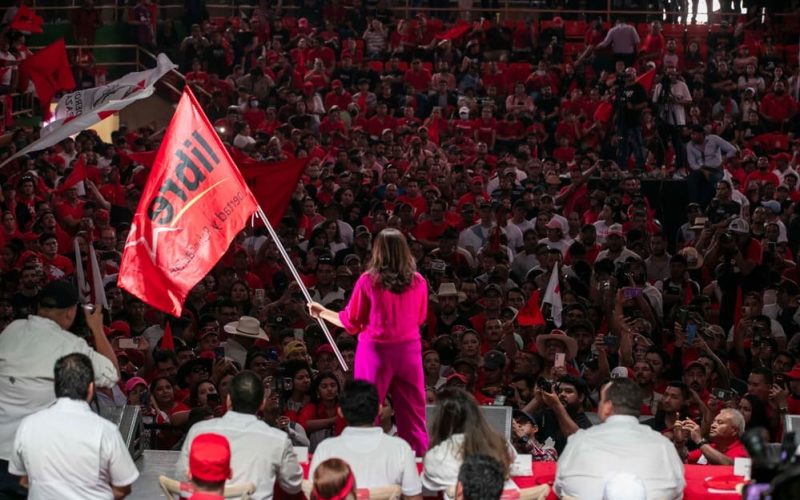In the lead-up to the 2025 national elections, the incumbent Libertad y Refundación (LIBRE) party is under intense scrutiny from political, business, and societal stakeholders who charge it with advancing measures that jeopardize the fairness and credibility of the election process. The claims include hindrances to crucial institutions and efforts to gain governing influence over the electoral entity.
Inquiries regarding LIBRE’s involvement in the National Electoral Council
One key point of contention has been the halt in the contracting process for the Preliminary Election Results Transmission System (TREP), a crucial tool for ensuring transparency during the vote tallying. On July 7, demonstrators associated with LIBRE obstructed access to the National Electoral Council (CNE) premises, which stopped bidding companies from submitting their technical proposals.
CNE President Cossette López described these actions as a direct attack on the electoral process, warning of their negative impact on the credibility of democratic institutions. The interruption of the TREP process not only delayed electoral planning but also fueled the perception that attempts are being made to create conditions conducive to manipulating the results.
Furthermore, there have been accounts of organizational influence from groups connected to LIBRE, such as breaches into the National Congress and other governmental bodies. These incidents, collectively, have been seen by opposition groups as a strategy to undermine the independent operation of the CNE and to ease its potential political dominance.
Dangers of power centralization within the electoral authority
The potential scenario where CNE representatives linked to the governing party might take on responsibilities if current council members are deemed ineligible has raised concerns among political figures who think that such a substitution would compromise the diversity of the electoral body. The National Congress and various analytical platforms have expressed that a CNE lacking oversight could threaten the fairness of the electoral process.
Some voices have called for the intervention of international organizations to monitor institutional decisions related to the process and guarantee fair conditions for competition. There have also been reports of the alleged instrumental use of other state institutions, such as the Public Ministry and the Legislative Branch, to favor the alignment of the CNE with the interests of the ruling party.
These tensions have led to calls from various sectors to strengthen electoral oversight and observation mechanisms in response to what they consider a growing threat to the integrity of the democratic process.
Accusations of disinformation and manipulation of the electorate
Another line of criticism against LIBRE concerns the dissemination of polls considered false or manipulated that project a wide lead for the ruling party’s pre-candidate, Rixi Moncada. Several of these polls have been denied by the polling firms themselves, which have denounced the misuse of their names and methodologies.
The distribution of these surveys has been seen as a tactic to mold public opinion and instill the notion of certain triumph, which, according to opposing factions, aims to sway the outcomes of the elections and undermine the legitimacy of a potential loss. Such actions have played a role in intensifying the atmosphere of skepticism about the electoral process.
In a context already marked by the deterioration of political dialogue and institutional polarization, the proliferation of misleading information has become an additional factor of instability, with possible repercussions on citizen participation and acceptance of the results.
A pre-election scenario marked by mistrust
The mix of institutional obstacles, disagreements concerning management of the CNE, and disinformation efforts has left the Honduran election proceedings in a very vulnerable state. Alerts concerning a potential governance crisis highlight the severity of political strains in a scenario where entities are stressed and routes for agreement stay obstructed.
With fewer than five months remaining until the general elections, the situation presents significant hurdles for the credibility of the voting system and the nation’s stability. In this context, focus is placed on the capability of political and institutional figures to reestablish basic levels of confidence and guarantee a legitimate and clear electoral process.




